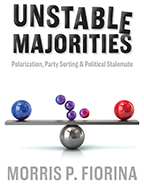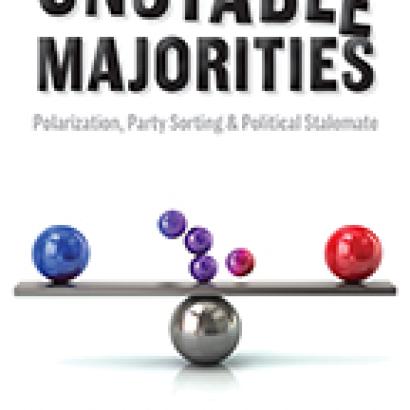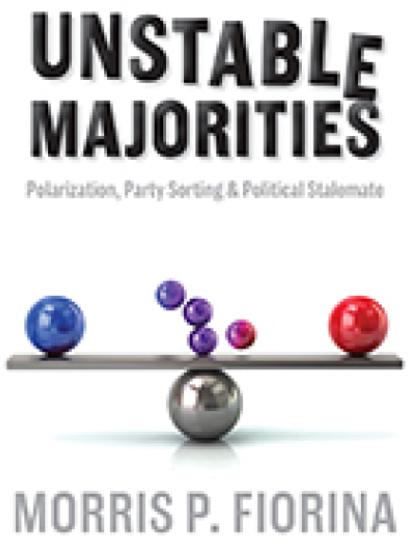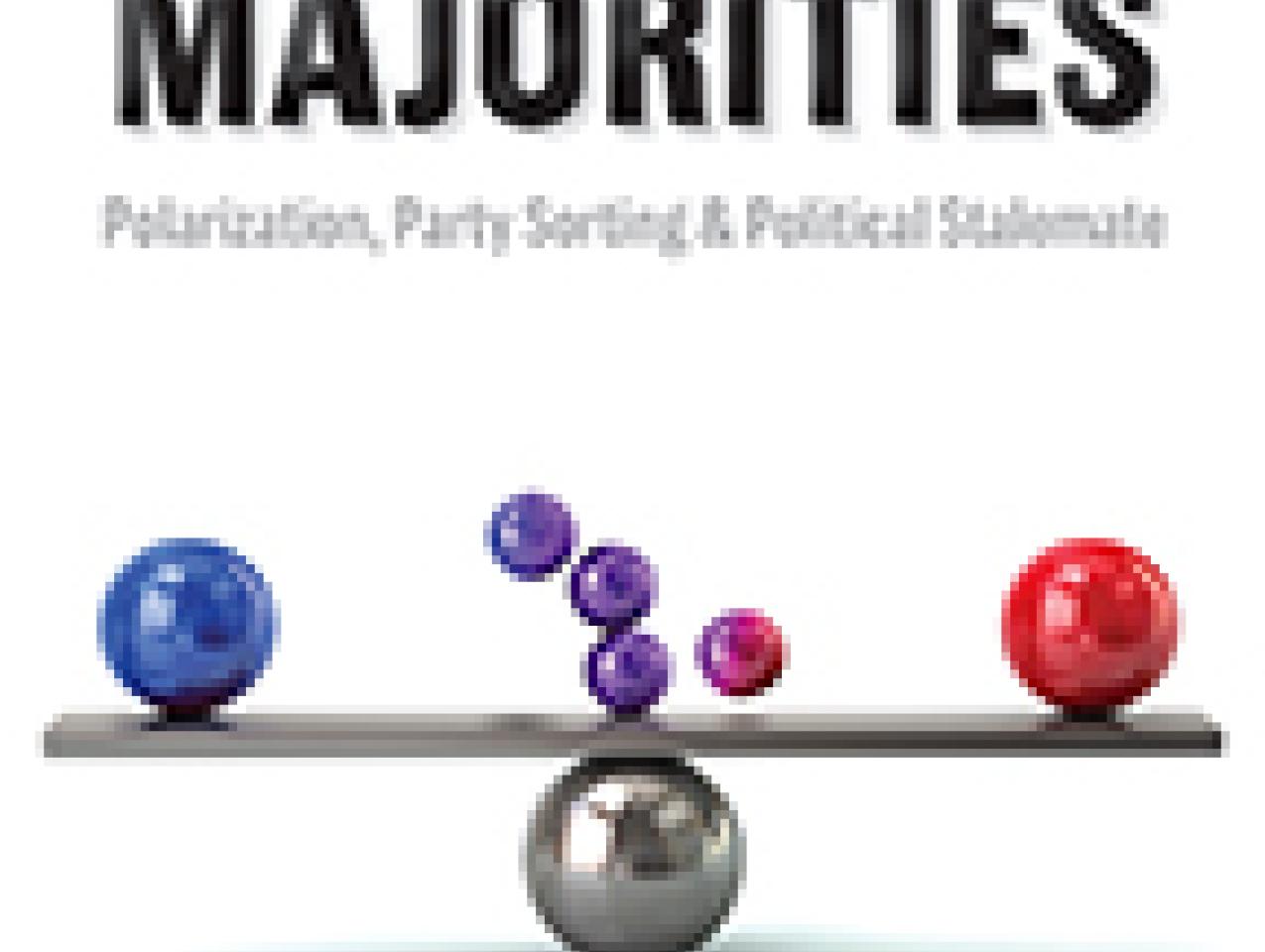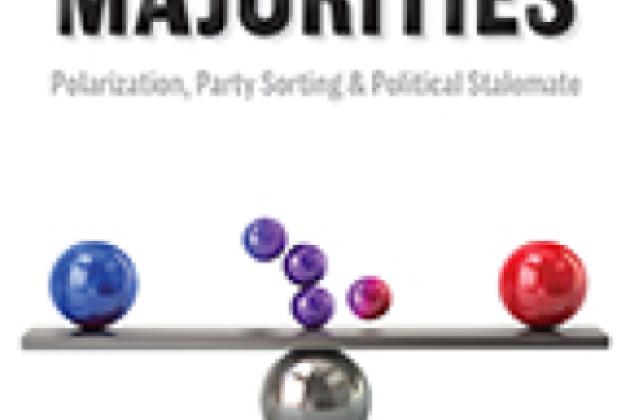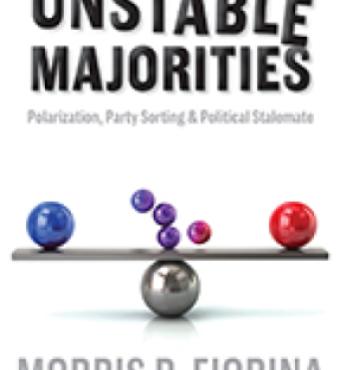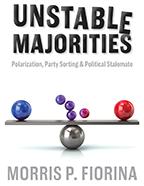In the wake of the 2016 election, one of the most commonly held assumptions in American politics is that voters are more polarized than ever. But in Unstable Majorities, released by the Hoover Press, Morris Fiorina brings research and historical context to the discussion of the American electorate and its voting patterns, and he corrects misconceptions about polarization, voter behavior, and political parties. A Hoover Institution and Stanford political scientist, Fiorina argues that party sorting—not polarization—is the key to understanding our current political turbulence.
“In this impassioned yet scholarly book Morris Fiorina explores the instability that has resulted in recent American politics, as a generally moderate and conflicted electorate has been forced to choose among options served up to them by increasingly polarized political parties and activists,” said Andrew Gelman, Professor of Statistics and Political Science and Director of the Applied Statistics Center at Columbia University. “The Paradox is that voters increasingly follow the party line but political outcomes have become wildly oscillating and unpredictable. As Fiorina explains we can only understand voters in the context of the choices they face.”
Fiorina analyzes past eras in American history, looking at different patterns of institutional control and examining the key factors of contemporary politics. He argues that the parties have become more homogenous internally and more distinct from one another, all of which are key to understanding the partisan divide and our current political turbulence.
“Few, if any, write as clearly and persuasively as Mo Fiorina. Many will pick up this book thinking that polarization in the electorate is as obvious as the fact that the sun rises in the east, but they will immediately find themselves on their heels. Excellent scholarship causes us to question what we were sure was true, and no one causes us to do that as reliably as Fiorina.” said Marc Joseph Hetherington, Professor of Political Science at Vanderbilt University.
In a time marked by gridlock and incivility, Fiorina’s meticulous historical examination of the American institutional system gives us reasons to be optimistic about the future of American electoral politics.
About the Author
Morris P. Fiorina is a senior fellow at the Hoover Institution and the Wendt Family Professor of Political Science at Stanford University. His current research focuses on elections and public opinion with particular attention to the quality of representation.
For more information and to purchase Unstable Majorities, visit HooverPress.org. For more information on the Hoover Institution, visit Hoover.org or find us on Facebook, Twitter, Instagram, and Scribd (keyword: Hoover Institution).
About the Hoover Institution: The Hoover Institution, Stanford University, is a public policy research center devoted to the advanced study of economics, politics, history, and political economy—both domestic and foreign—as well as international affairs. With its eminent scholars and world-renowned Library & Archives, the Hoover Institution seeks to improve the human condition by advancing ideas that promote economic opportunity and prosperity and secure and safeguard peace for America and all mankind.
CONTACT INFORMATION: Marlon Bateman | Office of Public Affairs | Hoover Institution | bateman@stanford.edu | 650-723-0603







